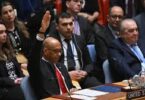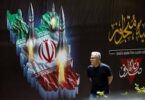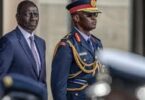Monitoring Desk
BEIRUT: Lebanese Prime Minister Saad al-Hariri said on Saturday that he will not accept Iran-backed Hezb-ollah’s positions that “affect our Arab brothers or targets the security and stability of their countries”, a statement from his press office said.
Hariri announced his resignation from his post on Nov. 4 in a televised statement from Saudi Arabia, a Sunni monarchy and regional powerhouse locked in a confrontation with Shi’ite Iran.
After returning to Lebanon this week, he shelved the decision on Wednesday at the request of President Michel Aoun.
On Saturday, he said that his decision to wait instead of officially resigning is to give a chance to discuss and look into demands that will make Lebanon neutral and allow it to enforce its “disassociation” policy.
“Disassociation” is widely understood in Lebanon to mean its policy of staying out of regional conflicts. The regional role played by the Iranian-backed Hezbollah political and military movement has greatly alarmed Saudi Arabia, Hariri’s long-time ally.
Lebanon was thrust back onto the frontline of a regional power tussle this month between Saudi Arabia and Iran.
The two regional powers back competing factions in Iraq, Syria, Lebanon and Yemen, the last of which has become a central arena of the proxy battle.
Saudi policy of confronting Iran more aggressively around the region has been spearheaded by Crown Prince Mohammed bin Salman, who is also attempting to push through difficult and extensive internal reforms.
Saudi Arabia has played an important role in Lebanon in the past, helping to broker the end of its civil war in 1990 and contributing to reconstruction afterwards.
But the extent of its role in the Nov. 4 resignation announcement by Prime Minister Saad al-Hariri has been widely debated in Lebanon and led some Lebanese to fear that Riyadh sought to destabilize their country.






